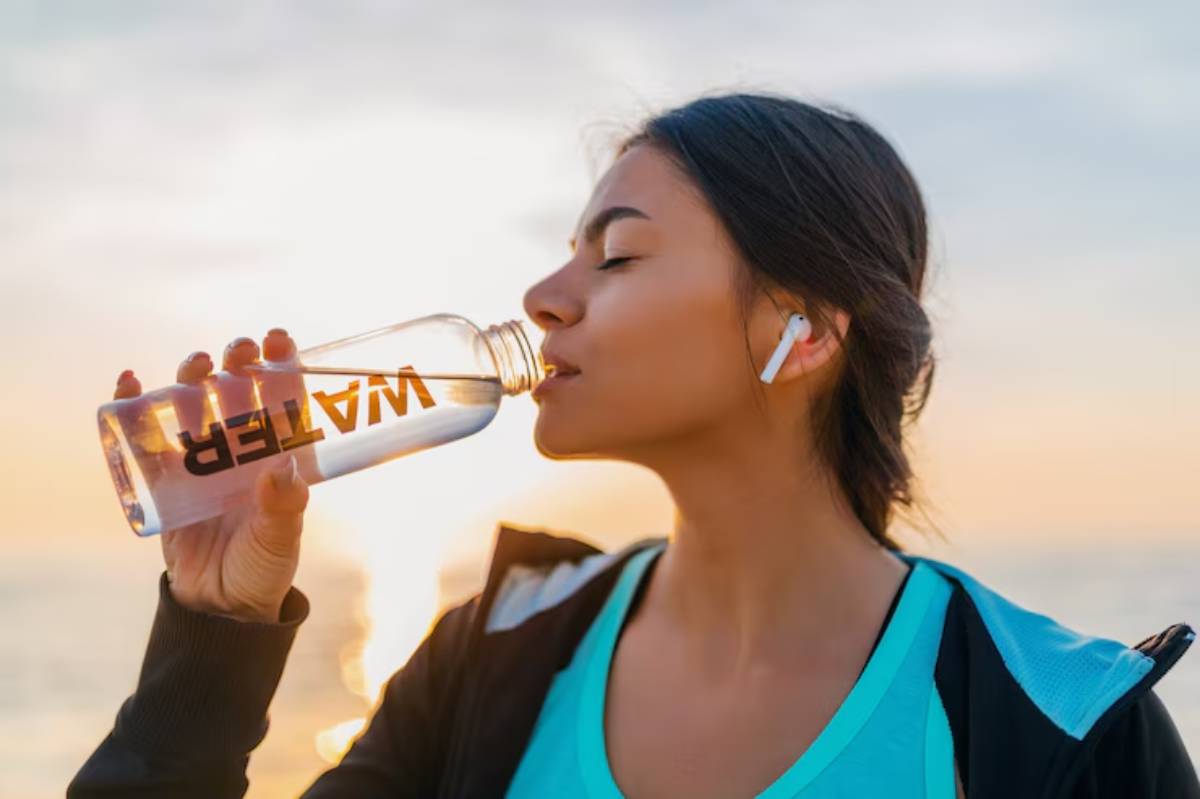
The Role of Hydration in Pre-Workout Success
You plan your workouts, track your macros, and never skip leg day. But are you paying enough attention to your hydration?
Believe it or not, hydration before exercise can make or break your performance. It’s not just about avoiding thirst — it’s about enhancing strength, endurance, and focus while protecting your body against fatigue and injury.
In this guide, we’ll explore the critical role of fluid balance during workouts, smart strategies for electrolyte timing, and practical steps you can take to optimise your pre-workout hydration, ensuring you perform at your absolute best every session.
Ready to master your hydration game? Let’s dive in!
Why Pre-Workout Hydration Matters
Water isn’t just a backdrop for physical activity; it’s a central player.
Key Functions of Proper Hydration:
- Regulates body temperature
- Supports nutrient transport
- Lubricates joints
- Maintains cardiovascular efficiency
- Enhances muscle contractions
Expert Insight: Even mild dehydration (1-2% bodyweight loss) can impair performance significantly, according to the American College of Sports Medicine.
When you’re dehydrated, your body struggles to perform at its best. This insufficient hydration affects both physical and mental functions significantly. You may find it challenging to concentrate, feel sluggish, or lack energy throughout the day. Dehydration can lead to fatigue, headaches, and decreased alertness, all of which hinder your productivity.
To maintain optimal health, it’s crucial to stay properly hydrated. Drinking enough water promotes better circulation, aids digestion, and supports temperature regulation. Hydration also plays a vital role in cognitive functions, enhancing focus and clarity.
Incorporating hydration into your daily routine can improve overall efficiency in activities, whether at work or during exercise. Regularly consuming fluids ensures your body has the resources it needs to thrive. Prioritizing hydration is key to feeling your best.
How Dehydration Impacts Workout Performance
- Reduced Endurance: Early fatigue, shorter sessions.
- Weaker Strength Output: Difficulty hitting peak lifts.
- Slower Reaction Times: Poor focus and coordination.
- Increased Risk of Cramping: Electrolyte imbalances strain muscles.
Real-World Example: Imagine trying to lift heavy squats while your muscles are starved of fluid and electrolytes — it’s like trying to sprint in sinking sand.
Pre-Workout Hydration Goals
The aim is simple:
- Start training in a hydrated state.
- Maintain fluid balance throughout your session.
- Support recovery by avoiding major dehydration post-training.
Key Metrics:
- Pale yellow urine = good hydration.
- Dark yellow = dehydration red flag.
Fluid Balance for Workouts: How Much Water?
Time
Amount
Notes
2-3 hours before
400-600ml water
Steady intake
20-30 minutes before
200-300ml water
Top-up hydration
During workout
150-250ml every 15-20 minutes
Adjust based on sweat rate
Golden Rule: Don’t gulp massive amounts right before training; sip consistently.
Electrolyte Timing: The Unsung Hero
Electrolytes (sodium, potassium, magnesium, calcium) are essential for nerve function and muscle contractions.
When to Focus on Electrolytes:
- Training longer than 60 minutes
- Training in hot, humid environments
- High-intensity interval sessions (HIIT)
Smart Electrolyte Options:

- Coconut water
- Electrolyte powders or tablets
- Sports drinks (low sugar preferred)
A pinch of Himalayan salt in water can help if you sweat heavily and need a DIY A comprehensive solution involves identifying the problem, analyzing potential options, and implementing effective strategies to achieve the desired outcome.
Signs You’re Under-Hydrated Before Training
- Thirst (yes, it’s already too late!)
- Dry mouth or lips
- Fatigue even before warm-up
- Muscle cramps
- Light-headedness
Prevention Strategy: Create a consistent hydration habit, not just last-minute chugging!
Best Pre-Workout Drinks for Hydration
Drink
Benefit
Plain Water
Baseline hydration
Coconut Water
Natural electrolytes
Electrolyte Drinks
Targeted replenishment
Homemade Electrolyte Water (water + pinch of salt + squeeze of lemon)
Budget-friendly option
Avoid:
- Sugary soft drinks
- Excess caffeine close to workouts (diuretic effect)
Explore: Top Hydration Hacks for Gym Success
Pre-Workout Hydration Tips for Different Workouts
Strength Sessions
- Prioritise water and electrolytes.
- Avoid bloating from over-drinking immediately pre-workout.
Endurance Workouts (Runs, Cycles)
- Hydrate 2-3 hours beforehand.
- Include electrolytes during workouts over 60 minutes.
HIIT/MetCon Training
- Sip electrolyte-infused water during session.
- Focus on magnesium for muscle recovery.
Real-World Success Stories

Sophie’s Surge: Sophie, a spin class enthusiast, used to crash halfway through. Adding 400ml of electrolyte water 2 hours before training improved her stamina dramatically.
Dan’s Discovery: Dan, a CrossFit athlete, battled cramping during summer WODs. Strategic magnesium and
Sodium loading before his sessions enabled him to complete full workouts effortlessly.
Lesson: Staying hydrated is not merely an option; it can significantly enhance performance and recovery.
Myth Busting: Hydration Before Exercise
1. “You only need to drink if you’re thirsty.”
Reality: Thirst signals dehydration. You need to hydrate proactively.
2. “Plain water is enough for everyone.”

Reality: Electrolytes are critical during longer or high-sweat workouts.
3. “Chugging water right before a session is best.”
Reality: Steady sipping is key. Last-minute flooding stresses your body.
Key Takeaways:
- Hydrate 2-3 hours before training, top up 20 minutes before.
- Include electrolytes for sessions over 60 minutes or in hot conditions.
- Steady sipping beats last-minute chugging.
- Personalise your fluid needs based on sweat rates and workout intensity.
Hydrate Smart, Train Hard
You’ve prepped your gear, planned your routine, and set your goals — now make sure your hydration matches your ambition.
By mastering hydration before exercise, dialling in smart electrolyte timing, and maintaining consistent fluid balance during workouts, you’ll lift stronger, last longer, and recover faster.
Now it’s your turn! What’s your go-to pre-workout hydration strategy? Have you noticed a difference when you’re fully hydrated? Share your tips and experiences in the comments — let’s help each other train smarter!